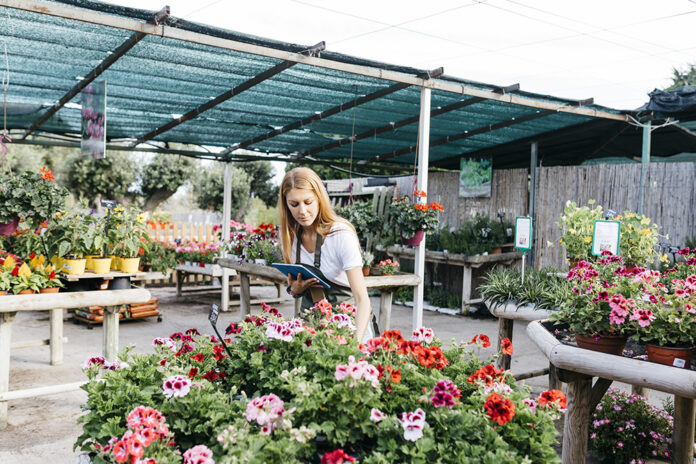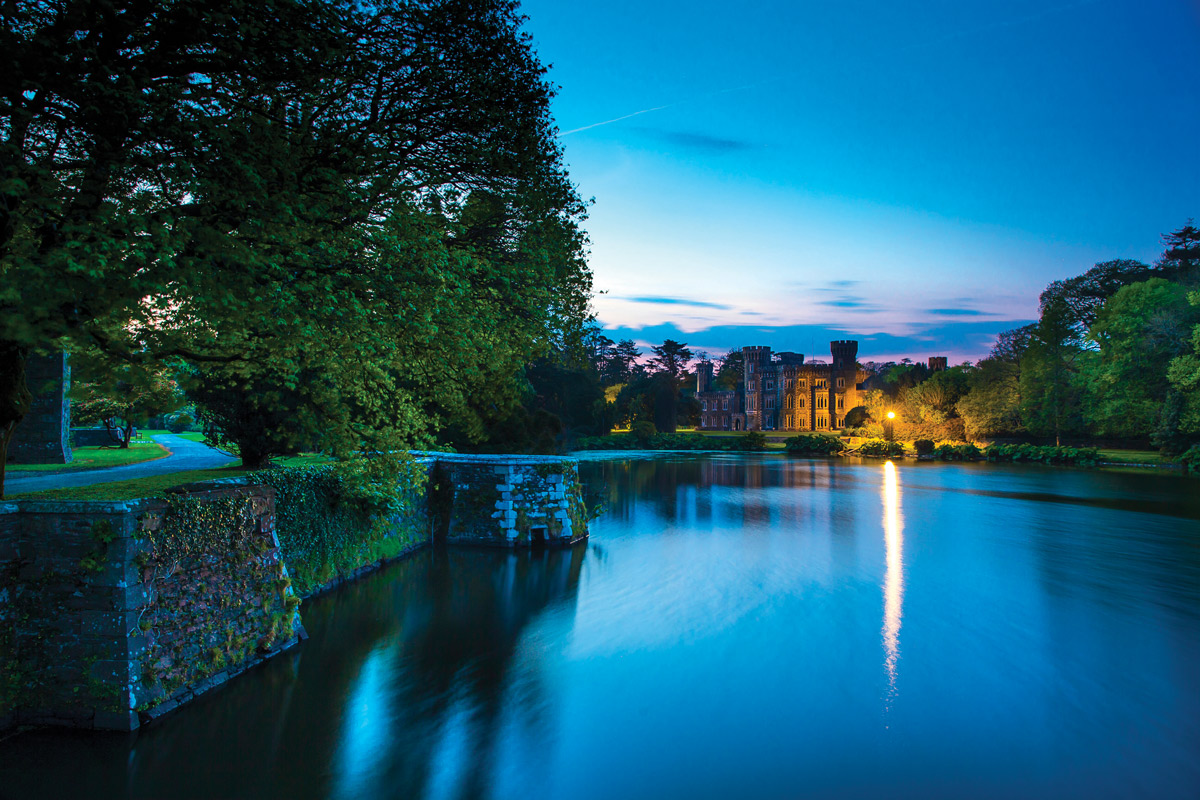TU Dublin student Aideen Loftus Aideen Loftus sees more opportunities than challenges facing the Horticulture retail sector as a result of climate change.
There is no escaping the issue of the climate crisis in Ireland. Met Éireann statistics show that our weather, or what the WHO refers to as ‘the day-to-day face of the Climate Emergency’, is slowly changing. Our winters are getting wetter, summers are warmer and dryer. We constantly hear of new government initiatives to decrease carbon dioxide outputs, cut down on plastic use, improve biodiversity and reduce our dependence on fossil fuels.
Next to farmers, Irish gardeners are confronted with the reality of climate change more than most of the general public. Research undertaken in the UK has shown that gardening practices will have to be adjusted. As the direct link to the gardening public, the horticulture sector has the choice to lead the charge towards climate-adjusted gardening or to adopt the “not-until-we-have-to” approach.
The All Ireland Pollinator Plan has captured the public’s imagination. Bug hotels, wildflower meadows, “No Mow May” – these are notions that would never have been considered proper gardening only a few years ago. Yet, sales of wildflower mixes are up, plants are being marketed as “pollinator-friendly” and even pesticides are being labelled “organic”. However, in my research, undertaken as part of the BSc Horticulture (Hons) at Technological University Dublin, I found a notable anomaly. 96% of gardeners in the survey said they actively grow plants to attract pollinators, yet almost a quarter of these use both herbicides and pesticides in the garden, missing the connection between chemical use, and its detrimental effects on pollinators and overall environmental damage.
The research, conducted in spring of 2022, confirmed that garden centres are very aware of who their traditional customer is; predominantly female and over 50. This is borne out both by data from Bord Bia in Ireland and similar RHS figures in the UK. Gardening retail soared during the pandemic bringing in new customers. These are the “Gardeners of the Future” referred to in Bord Bia’s 2017 report; younger, more environmentally aware and interested in sustainable gardening. The challenge is now to retain this customer and cater for a shift away from gardener vs. nature to gardening with nature.
Sustainable gardening is a way for the individual citizen to be an active player in the national climate action programme. Gardens are an important part of Ireland’s Green Infrastructure and have a mitigating role to play; soaking up rainfall, and providing habitat and haven for wildlife. Given that Irish urban developers are encouraged to include nature-based sustainable urban drainage systems (SUD), such as green roofs, swales and rain gardens in their plans; perhaps urban gardeners also need to be encouraged to retain permeable surfaces and planting as part of the suite of treatment systems available?
Garden centres with lifestyle departments are already seeing a shift towards “greener” products; vegan offerings in cafes, organic cotton clothing or plastic-free packaging. Good quality, innovative but eco-friendly products are coming on the market in all sectors and the horticulture trade is no exception. Manufacturers such as Elho are making a virtue of their wind-powered production and recycled raw materials, but are still producing a high- end, very saleable (and recyclable) product. This type of product story matters to the younger consumer and could be the key to retaining the Covid customer and driving sales for the future.
This research observed that peat is a much more emotive issue in Ireland than in the UK, and this was borne out by reports of low sales of peat-free compost. The Irish government’s policy on removing peat from horticulture has grouped amateur gardeners into the same space as professional growers. It will take more time for nurseries to transition away from peat, since their growing media requirements are different to the hobby gardener. For domestic use, peat-reduced and peat-free compost are perfectly adequate for most applications. 40% of the gardeners surveyed said they bought peat-based compost because there was no alternative available locally. Yet, 67% of the peat-free buyers were specifically avoiding peat products.
The latest review on the use of peat in horticulture (Jan 2022) recommends withdrawing peat composts from the Irish domestic market before finding a solution for commercial growers. It suggests that peat could be almost eliminated from the retail market by 2025. The retail sector can address this inevitability by actively promoting peat- reduced and peat-free options. Consumers, especially newer gardeners, need to be weaned off the “multi- purpose” mentality that sells peat as the ideal solution to all their needs. Alternatives using worm casts or wood fibre are available and with the right advice will produce equally good results for the garden centre customer.
Plastic is a major topic for all manufacturing. Nurseries are recognising and beginning to address the issue by using recyclable plant pots. There is some effort being made towards a closed-loop system, mainly with plant trays. However, it remains that very few items are currently reusable. The research suggested that the lack of standardisation in plant pot shapes and sizes, in addition to hygiene concerns, are the stumbling blocks. Surely this is a business opportunity for the circular economy of the future?
Dobbies Garden Centres in the UK have partnered with Dutch firm Elho to provide plastic recycling bins across their stores. In the garden centre, a separate bin is available for customers to recycle polythene compost bags. This is the kind of innovative thinking that provides a win for the Garden Centre, its customers, and the environment. Here in Ireland, the current National Waste Action calls for a “significant reduction” to single-use plastics by 2026, and for 55% of plastic packaging to be reusable or recyclable by 2030. Yet the disposal of garden packaging, labels, compost bags, feeds, and sprays is solely the responsibility of the consumer.
Climate change in Irish gardens is not only about peat alternatives, water butts and plastic recycling. It also presents opportunities for retail trade. As summers get warmer, the outdoor growing season will extend, leading to extra plant sales. More time spent in the garden creates the need for more tools, furniture, and other garden accessories.
I am not suggesting that it is solely the role of the horticulture sector to re-educate the gardening community. Local and national government can support the public with training and information initiatives in the style of the hugely successful All Ireland Pollinator Plan. Many garden centres already have programmes to support local pollinator projects, school gardens or Tidy Towns competitions. Having a cohesive, climate-positive approach with these groups supports and reinforces the messages of biodiversity, reducing carbon emissions, gardening for climate mitigation, and ultimately increasing sales for the businesses focused on providing for climate change. ✽

A sabbatical from the tourism industry led AIDEEN LOFTUS to study horticulture at the National Botanic Gardens. Her continued studies, and work in horticulture, have seen her spend time at RHS Wisley and Great Dixter in the UK, and work in a large Dublin garden centre and as assistant gardener in a private estate. She recently completed an Honours Degree in Horticulture Science at TU Dublin in Blanchardstown and is hoping to work in the area of climate and biodiversity. This article is taken from her thesis Climate Change in the Irish Garden. |

RACHEL FREEMAN (Thesis supervisor) is a lecturer in horticulture at Technological University Dublin, Blanchardstown Campus. |







